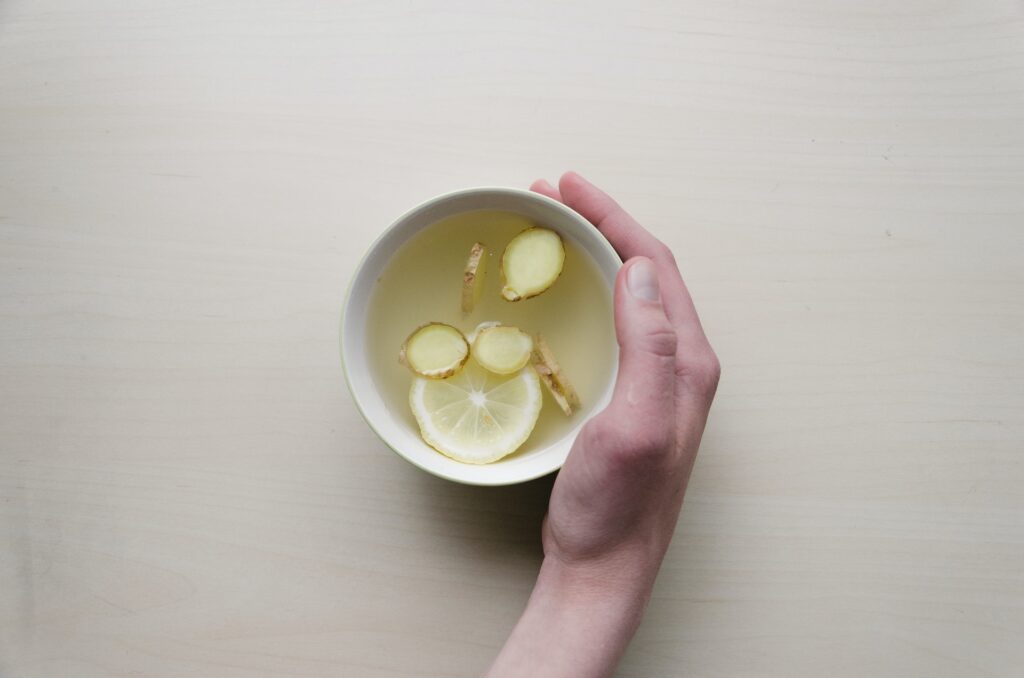
Body + Mind is reader-supported. We may earn an affiliate commission when you buy through some of the links on our site.
People often describe pregnancy as one of the most beautiful times in your life. While it may seem that way looking back on it, you’re probably not feeling too glamorous right now. Backaches, exhaustion and the constant need to use the restroom are likely already starting to get old, but one symptom is one of the most frustrating of them all. What is morning sickness and how can you manage it?
As many as seven in 10 pregnancies will cause morning sickness, so it’s a practically universal experience. Hopefully, you’ll fall into the 30% that don’t experience it — you should know by the time you’re about six to eight weeks pregnant, which is when morning sickness is most likely to appear. It should wrap up by 16–20 weeks, but there’s always the chance it could last the whole 39 weeks.
There’s also a rarer, more severe form of morning sickness called hyperemesis gravidarum (HG), which affects less than 11% of people. While the milder form of this symptom consists of nausea that sometimes leads to vomiting, HG will almost always cause vomiting will likely last until your pregnancy is over.

According to the American Pregnancy Association, morning sickness is when you feel nauseous during your first trimester. As scientists have recently discovered, the influx of hormones your body produces is often the culprit — specifically a protein called GDF15 within the placenta. It began as an evolutionary benefit that warned the brain of foods that could harbor infectious organisms, but now, it can make your favorite foods seem stomach-turning. However, they do note that many factors can lead to morning sickness.
Even though “morning” is in the name, nausea could strike at any time of day. Doctors do believe it’s a sign that the placenta is developing healthily, so at least there’s one benefit, even if it drives you crazy.
As stated earlier, while morning sickness will cause nausea and occasional vomiting, HG will almost always lead to getting ill. It’s characterized by frequent enough vomiting that leads to extreme dehydration and weight loss of at least five percent of your pre-pregnancy weight. You may also experience ketonemia, ketonuria or abnormal electrolyte levels.
The National Library of Medicine currently lists higher levels of human chorionic gonadotropin (hCG) as the cause but notes that the data has yet to be consistent. Researchers also offer excess estrogen levels and gastroesophageal reflux disease as potential causes, but as is the case with hCG, more research is necessary. However, you’re more likely to develop it if someone else in your family had an HG diagnosis.
Feeling sick nearly every day can make your pregnancy a struggle. Luckily, many have come before you and discovered the following remedies to make your nausea easier to stomach.
While there are plenty of companies on the market that promise morning sickness relief, your doctor can help you find a supplement that’s safe for your body. Vitamin B6 is a common remedy, along with ginger tea, which you can make by slicing some of the root and steeping it in hot water. The longer you leave it, the stronger it’ll be, so remember to set a timer.

The easiest way to dodge your morning sickness is to save your favorite but nausea-triggering foods until after the first trimester or you’ve given birth. One common trigger is fried and fatty foods — as yummy as they are, they stick around in your stomach for longer, which is a surefire way to make you feel sick. Warm meals can also be an issue if they have strong smells.
According to TLC, other common triggers can include:
With milk, coffee and citrus, it can help to eat something before you consume them.
If you tend to feel sick after eating, try to eat frequent and smaller meals. Eating something large and nourishing does feel much more satisfying, but it could overwhelm your stomach. Bland snacks like crackers and pretzels can keep you full throughout the day without irritating your already sensitive digestive system.
According to Ohio State University doctors, these foods can be your go-to easy meals:
If you don’t feel like making tea every time your morning sickness comes on, stock up on ginger beer or ale. Both contain gingerols and shogaols that have anti-inflammatory and nausea-fighting properties, making either beverage an excellent choice when your stomach starts turning. Even just the carbonation can help — you’d be surprised by how much a few big burps can do.
Be cautious about which ginger ale you buy, though. The sugar and caffeine in some brands can make you feel even sicker, while others only contain ginger flavoring, so check the labels, and try to buy sugar- and caffeine-free versions. Ginger beers can have more ginger than ale, but again, it’s crucial to read the nutrition facts. Also, it’s often stronger than ginger ale, so you’ll either think it’s delicious if you love the taste or might find the soda form more palatable.
Unsurprisingly, pregnancy makes you pretty tired, so you may need to adjust your sleep schedule to avoid morning sickness. Give yourself enough time in the morning so you don’t have to rush out of bed and start with something simple, like cereal or fruit. You’d probably also benefit from going to bed earlier.

You should see your pregnancy care professional for advice if none of these remedies help and your symptoms sound more like hyperemesis gravidarum. While frequent sickness isn’t necessarily harmful, HG can cause dehydration and weight loss, which could lead to complications.
No one likes feeling nauseous, but it’s particularly frustrating when you’re feeling that way every day along with being pregnant. Unfortunately, the answer to “What is morning sickness?” is it’s one of the most common pregnancy symptoms. You have many options for treating it at home, but be sure to talk to a specialist if you feel and get sick constantly — they’ll give you specific advice that can provide relief.
Your email address will only be used to send you our newsletter, and at any time you may unsubscribe. For more information, see our Privacy Policy.